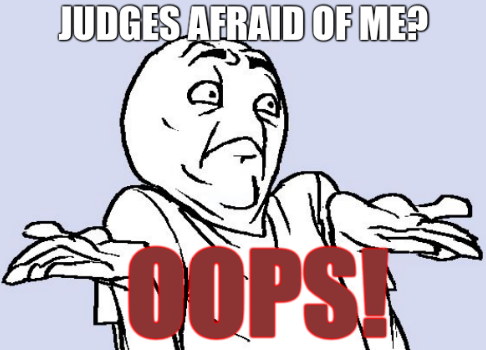

THE recent setbacks for the UPC must have gotten the litigation firms in Munich (or its suburbs) rather nervous. More and more of them now realise that the UPC will never come about.
"That’s like the U.S. Patent and Trademark Office (USPTO) lobbying SCOTUS by lying to it on the (non)issue of 35 U.S.C. €§ 101. What would the judges think and feel?"European Patent Office (EPO) President António Campinos is already meddling in a case regarding software patents in Europe, which are illegal. He has leverage over the already-terrified judges, who were collectively bullied and punished by Battistelli, the man who gave Campinos this job. Their location in Haar doesn't give them safety, it merely gives them a warning (from the President of the Office). You're one stone-throw away from a “difficult legacy”...
Looking at the latest replies to one article about the truly ridiculous late Friday press release, we now see "The Convention watchdog" stating:
The wishes expressed by the EPO and its Administrative Council which outcome they expect from pending proceedings may influence the Boards of Appeal in their decisions. This approach will certainly not work with the Bundesverfassungsgericht.
High costs and lengthy proceedings make the EPO route objectively challenging for SMEs. There are reasons for the continued reliance on national filings and alternative tools when they are available, such as utility models in Germany.
If the EPO really wants to be on par with other prominent patent systems in terms of attractiveness for SMEs, why not look at a 50% reduction of all fees for SMEs and individual applicants, as in the US ?
Just a thought, but could it be, that departure of the UK from the EU will ease re-negotiation of the UPC, allowing it to come into force sooner rather than later (or not at all).
I mean, lawyers in England find it so hard to reconcile their system of law with that on the European mainland. And civil law practitioners from the remainder of the EU, in discussion with nit-picking English lawyers, find it hard to appreciate where those English lawyers are “coming from”.
True, the Republic of Ireland also has English law but RI is a relatively small EU Member State, with no delusions that it is the true carrier of the flame, the fount of all logic, and all nations in Western Europe should follow its lead.
So, from now on, legal discussions between the 27 remaining EU Member States, on all legal issues, not just patents, should proceed more smoothly and efficiently. That would go wider, extending for example to any legal discussions between the EU and any or all of China, Japan, Korea.
Meanwhile, lawyers in England will be more free to get into a warm and self-congratulatory huddle with their cousins in the USA.
Earlier this week the UK Prime Minister Boris Johnson played host to the new President of the European Commission, Ursula von der Leyen. As is usually the case with such meetings, it was followed by an official communiqué from the British government giving its account of what was discussed. The document issued totalled a few paragraphs, one of which read:
The PM was clear that the UK would not extend the Implementation Period beyond 31 December 2020; and that any future partnership must not involve any kind of alignment or ECJ jurisdiction …